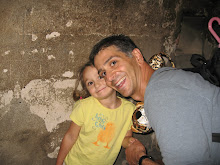Help! The king is ill and is killing his subjects!
After learning that his beloved was unfaithful the king lost his mind. He began marrying young women, bedding them on the wedding night, and then executing them the next morning. But when Scheherazade was in his bedchamber, she told him a story; she embedded one story into the first so that when the evening ended, the narrative was incomplete. She thus postponed her execution by a day. The next evening she did the same thing, and so on for many more nights to come.
After a thousand and one nights, however, a funny thing happened. The stories came to an end and the king was cured of his insanity.
A more dramatic cure takes place in Boccaccio’s Decameron. During the plague of 1348—a real event which killed over a third of all people throughout Eurasia—ten youths escape to a Tuscan villa. They spend two weeks telling a hundred tales. But at the end, they return to Florence… and the plague is gone.
Of course, I’m not going to suggest that literature can cure mental illness, to say nothing of physical ailments. But for centuries literature has brought comfort to readers.
For centuries, the history of literature was about giving voice to different groups—people of a common language, heritage or citizenship, or of a particular region or belief. The process is still ongoing.
For example, in a society that still undervalues certain groups—women, people of color, of lower socio-economic status, or of certain sexual orientations—it can be uplifting for individuals to “read their story.” Of course, the works are fictional, and therefore not literally “their story.” Still it is important for people to see themselves as actors in the world, even when the society defines them otherwise.
But socio-politics is only part of the picture. Literature can speak to difficult experiences, and can help people make sense of them. Whether dealing with emotional betrayal or universal calamity, it gives a person the sense that someone else understands their predicament. And that knowledge alone can be crucial.
Literature may not change tragic circumstances, and it won’t cure psychosis. But it can make a difference in how someone faces their situation. And sometimes, that makes all the difference in the world.
Sunday, February 7, 2010
Subscribe to:
Post Comments (Atom)




No comments:
Post a Comment
Note: Only a member of this blog may post a comment.